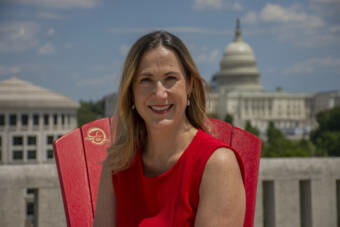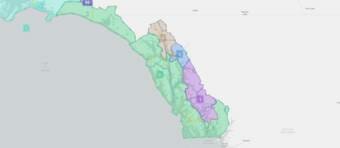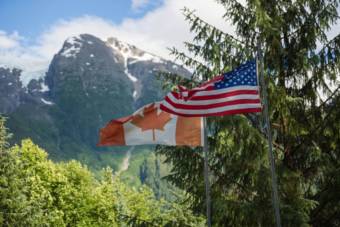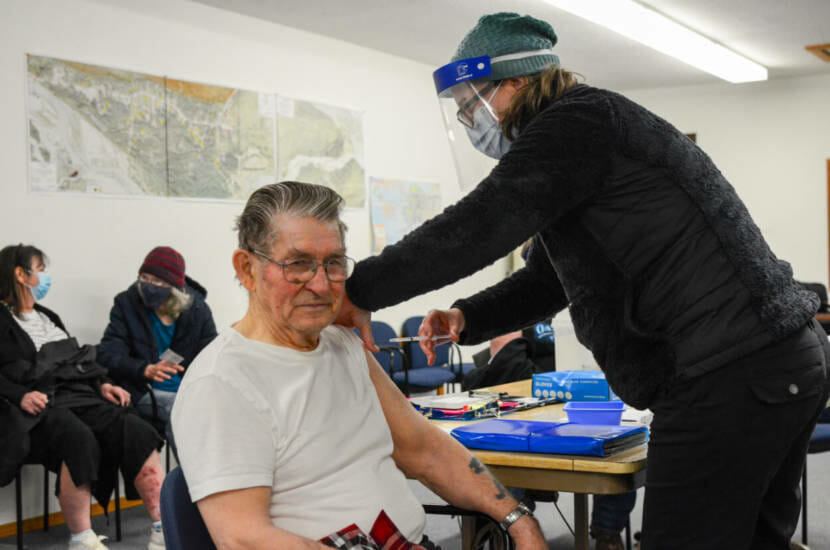
The state’s COVID-19 vaccination effort continued in Alaska’s easternmost corner over the weekend. Many of the 50-odd residents of the tiny Southeast community of Hyder received their second doses on Saturday.
After cradling a cooler full of Moderna vaccine on a 90-minute floatplane ride to Hyder, a pair of state public health nurses set up shop in Hyder’s town hall and got to work. Theresa Ruzek said vaccinating far-flung communities like these is an exciting perk of the job.
“I get to meet unique people with unique different life stories. And I get to bring vaccine, which to me, kind of is equivalent to freedom,” she said, “because I think that this is our road out of these restrictions.”
For Hyder, the only road out runs through British Columbia. At the head of Portland Canal and surrounded by 4,000-foot tall mountain peaks, it’s isolated from the rest of Alaska. That makes this town of about 50 very close with its Canadian neighbors.
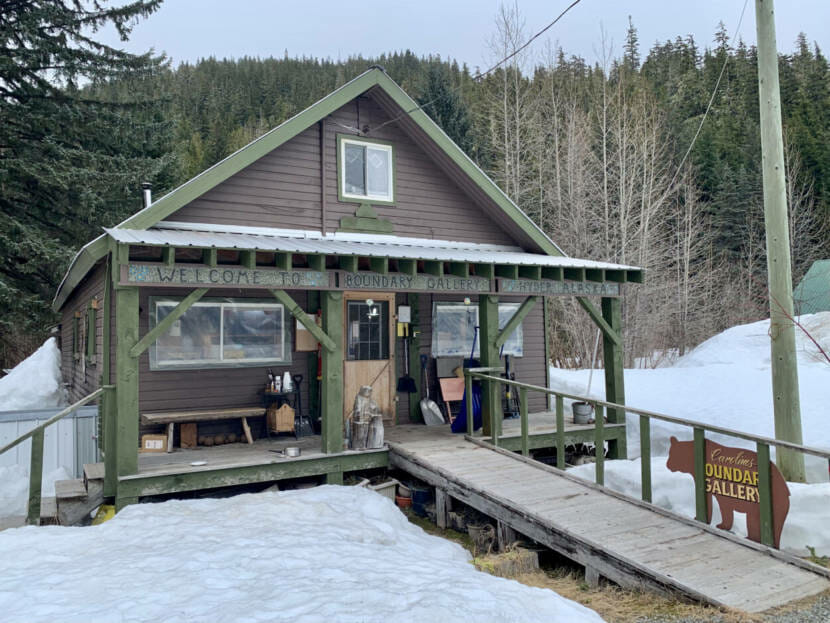
Caroline Stewart owns Boundary Gallery and Gifts, a small shop she runs when there’s summer tourists. She’s lived in Hyder for nearly five decades. Standing on the back porch, she said this past year has been especially tough.
“It’s been hell. It’s just been hell,” she said.
Not just because of the pandemic, but because of travel restrictions at the border aimed at curbing its spread.
Hyder’s residents arguably couldn’t live here without their neighboring town.
“We’ve got the post office, we’ve got the town hall, we have Forest Service in the summer — OK, I’m done. That’s it. That’s what we have,” she said.
But just three miles down the road — through a Canadian customs checkpoint — is Stewart, British Columbia. It has about 400 people and that’s where people shop for groceries, buy their fuel and get just about everything.
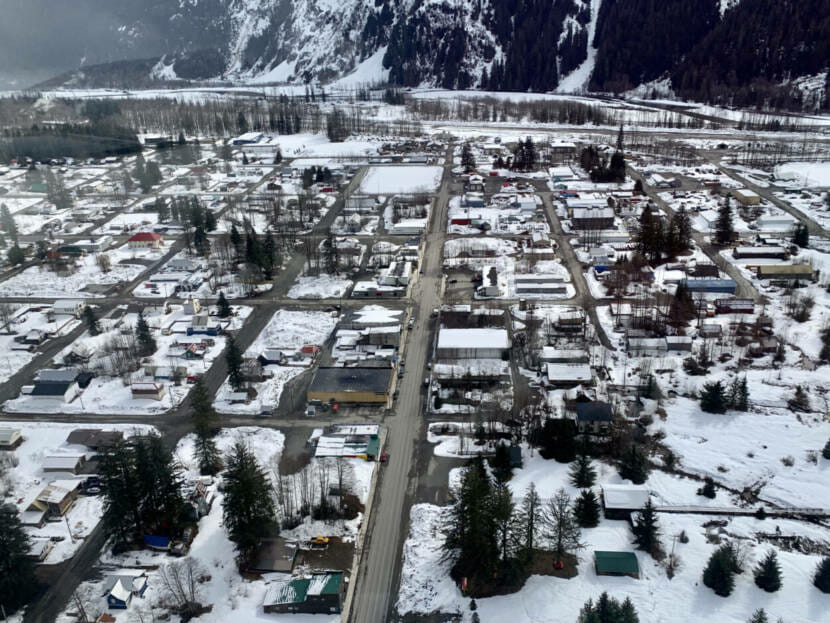
“Best damned neighbors you will ever find. The history going back to 1920,” Stewart said. “We have always shared two countries, one community. Nothing’s changed.”
But Canada’s border has been closed to all but essential travel for about a year now. Hyder residents are allowed to cross over to shop for essentials, and kids can attend the school. But they can’t play sports or attend sleepovers. There are no cross-border dinner parties, no socializing allowed with friends and neighbors.
“So I can go buy bread. I can go buy wine,” Stewart said. “But I cannot go to church and get Communion.”
And it’s been hard for Canadians on the other side of the border, too. Stewart resident Jane Beaumont said the border closure has made it tough for people on her side to fish to fill their freezers.
“There isn’t a reliable boat launch in Stewart, so a lot of people rely on the boat launch in Hyder,” she said. “Also, these communities rely on each other heavily for support. It divides families when that border is closed.”
She’s been unable to haul firewood or shovel snow for her mother, who lives on the Alaska side and is in her 70s.
So dozens of people were excited to turn out for a recent Alaska state public health clinic, where two Ketchikan-based nurses administered a few dozen shots. Some Canadian neighbors even showed up to take advantage of some leftover extra doses so they wouldn’t be wasted.
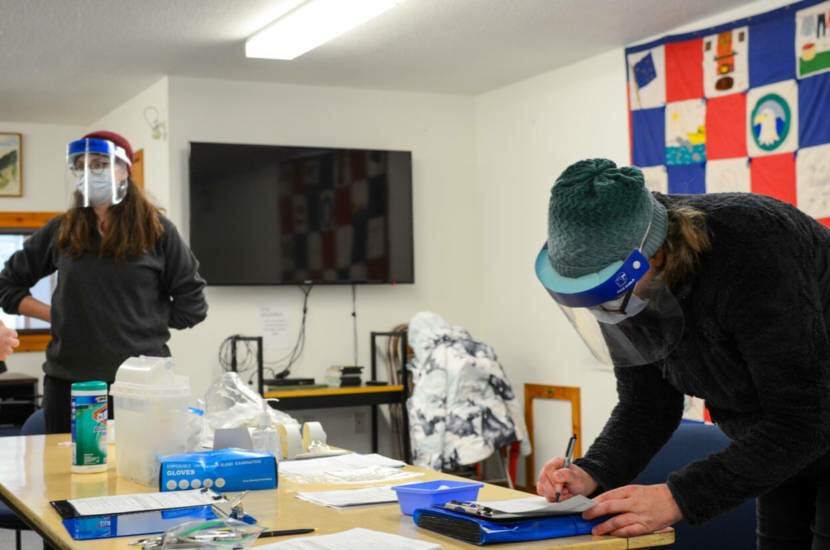
Alaskans are having an easier time getting the vaccine. The state opened vaccinations to everyone over 16 last month. But in Canada, supplies are limited, and eligibility remains restricted. Even those who do get a shot have had to wait around 16 weeks for a second dose — far longer than the three to four recommended by the manufacturer to be fully vaccinated.
That means that while about a fifth of the residents of northern B.C. have gotten their first dose, only about 1% of the population has received their second shot.
By contrast, about a third of Alaskans have received at least one dose of the vaccine and second shots are widely available.
Back at the gift shop, Caroline Stewart said she hopes the shot will give her a chance to resume her life as a snowbird. She’s usually in Arizona this time of year.
“I don’t know how sure I am of the vaccine. I just know that if I have the vaccine, it’s very likely travel will be easier for me,” she said.
And, crucially, easier for tourists who cross the border to for bear viewing at a U.S. Forest Service overlook.
“If this pandemic goes away, and that border opens, I will be able to say, ‘Hi, welcome to Hyder. Welcome to Boundary Gallery. How may I help you?’” she said.
“And I haven’t done that in over a year. And my heart aches to say those words,” she continued.
For now, Canada’s restrictions are the same for everybody, whether they’re vaccinated or not. But people here say they hope that’ll change soon.
